Lady Elliot Island © The Ocean Agency / XL Catlin Seaview Survey / Christophe Bailhache
More than 70% of our planet Earth is covered by water. From stunning glaciers to estuarial rivers, to the big wide blue ocean, human impact on these waterways is significant, but often we can’t tell the impact that we are having from our view on dry land.
A remarkable organisation called The Ocean Agency is bringing the wondrous underwater world to our screens and lounge rooms, with a vision to educate us all on the importance of protecting the ocean.
In this interview, we catch up with Lorna Parry, co-founder of The Ocean Agency, on the challenge facing the ocean and the positive approach they are taking as an organisation to make a difference.
What inspired the creation of The Ocean Agency?
Richard Vevers, back in 2010, decided it would be a good idea to form a not-for-profit with a few of his ex-advertising execs and creative friends that would dedicate itself to communicating the ocean’s issues in unexpected ways. Early on we recognised that many of the ocean’s issues are largely unnoticed, out-of-site and out of mind, so what better way to reveal these issues to the world, than by creating underwater Google Street View.
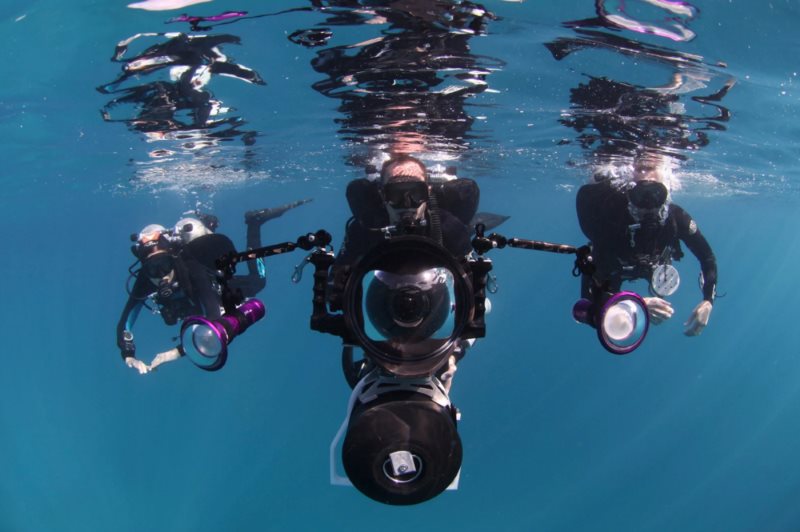
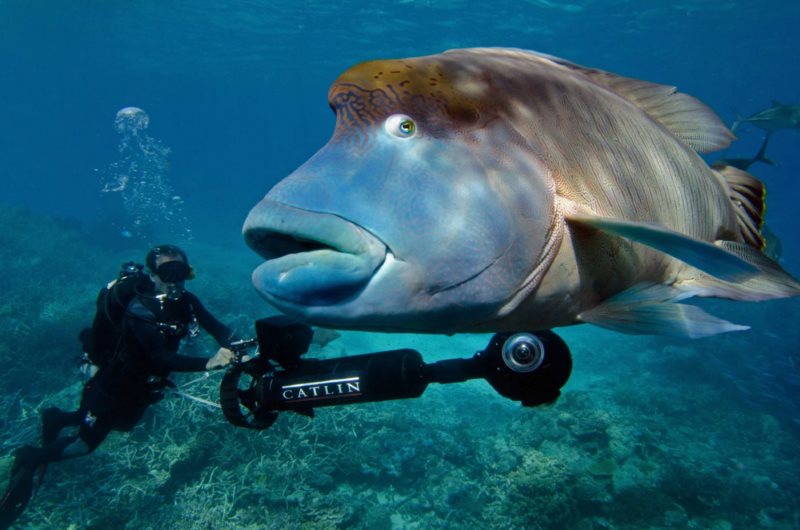
© The Ocean Agency / XL Catlin Seaview Survey / Richard Vevers
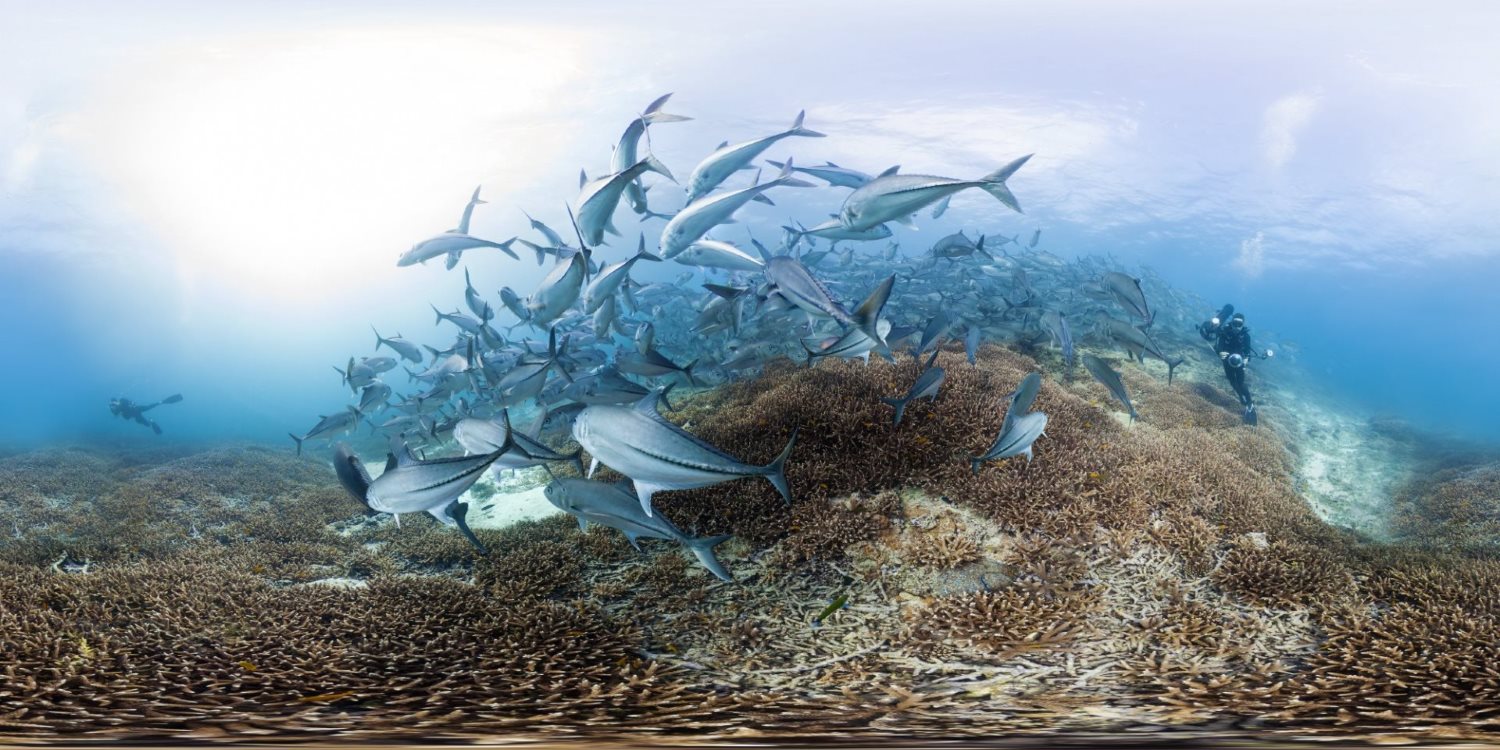
© The Ocean Agency / XL Catlin Seaview Survey / Christophe Bailhache
We developed an innovative 360-degree underwater camera system that allowed us to collect visual data on a large scale (not ever achieved before). We found ourselves the perfect science partners with Professor Ove Hoegh-Guldberg and the Global Change Institute (GCI) at The University of Queensland (UQ), and a corporate sponsor, XL Catlin, and from there was borne our first highly successful project, a global coral reef survey, the XL Catlin Seaview Survey. We’ve not looked back since.
We’ve taken over half a million panoramic images over the last few years using our specially developed cameras.
What is the mission of The Ocean Agency?
To be a catalyst for the global action necessary to tackle the ocean’s greatest issues.
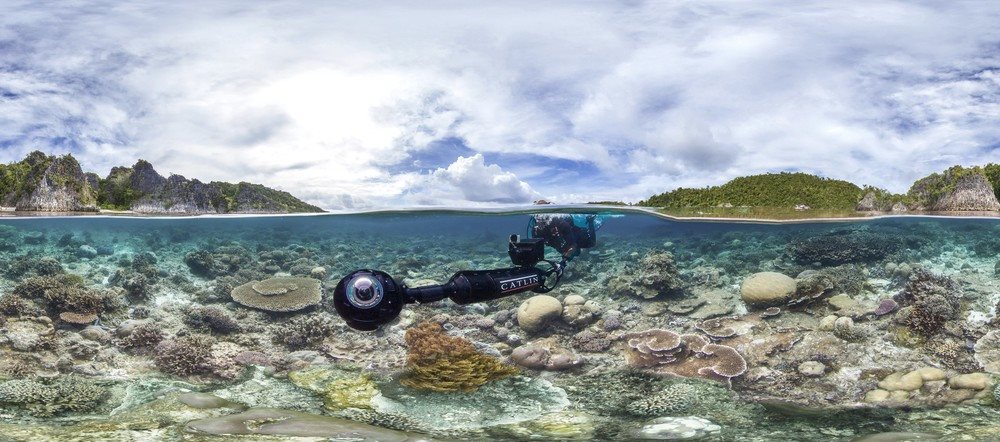
Raja Ampat, Indonesia © The Ocean Agency / XL Catlin Seaview Survey / Aaron Spence
Why the ocean?
Of all the conservation challenges on the planet, ocean conservation should top the list — it is about conserving the very source of life on Earth. Unfortunately, awareness is low, and ocean conservation is one of the least supported areas of conservation.
Each of the main issues; pollution, overfishing, ocean warming and acidification are major in their own right, but together they create arguably the greatest environmental challenge we have ever faced — that of ocean change. For thousands of years, the ocean has been stable, providing our planet with food, most of the oxygen we breathe, a favorable climate and a reliable supply of fresh water. It is the main reason why mankind has been able to flourish.
But the ocean is no longer stable. It is changing faster now than ever before. We have pushed it to its limit and beyond, thinking it was too big to fail us. The ocean is where the momentum of climate change is building up. Ninety-three percent of climate change heat is being absorbed by the ocean. The ocean is heating leading to already seen dire consequences, such as coral bleaching. One-third of all CO2 emissions are being absorbed by the ocean, rapidly changing the ocean chemistry. This has to stop if we want humanity to continue to flourish.
Protecting the ocean has never been high on the global agenda, it has always been seen as too big to fail. We now know we were very wrong. Letting the ocean fail is simply not an option.
— Christophe Bailhache — Co-Founder of The Ocean Agency
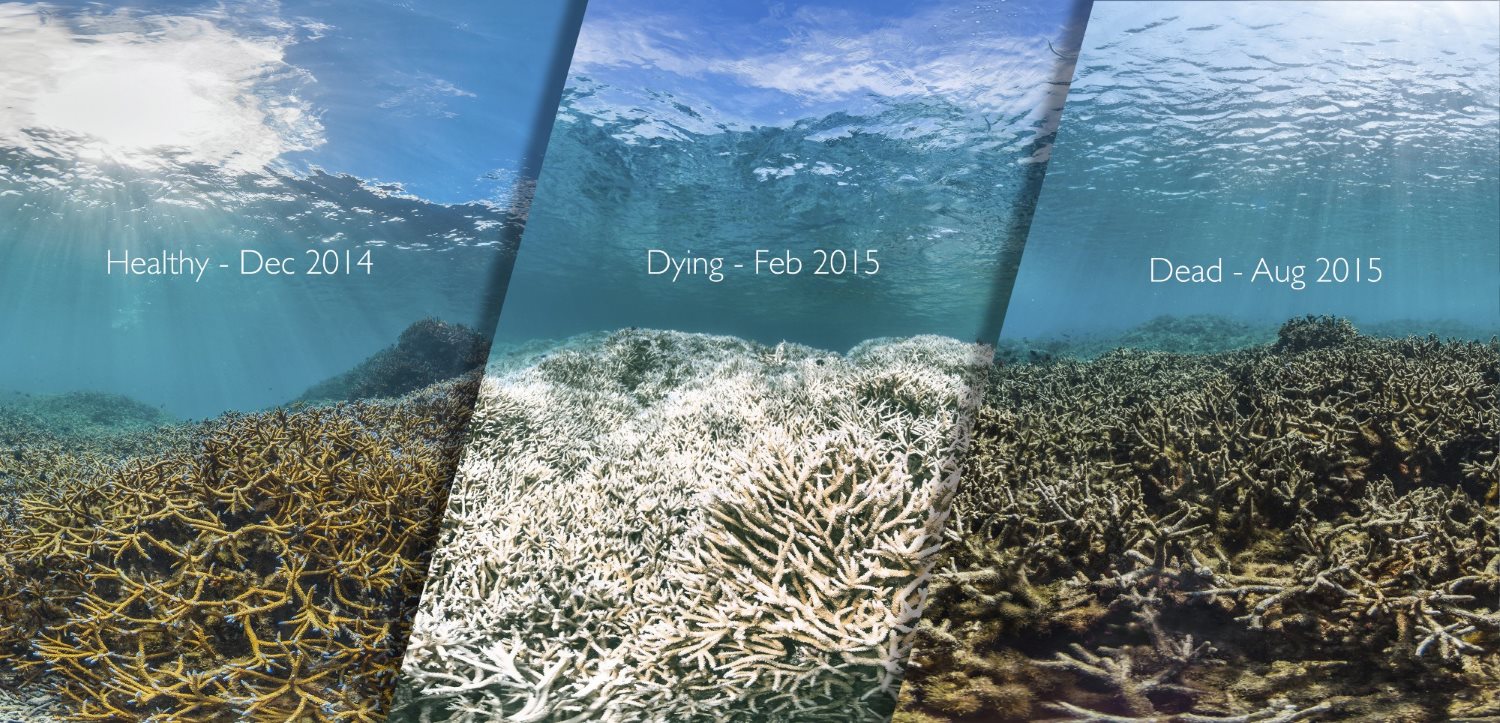
© The Ocean Agency / XL Catlin Seaview Survey / Richard Vevers
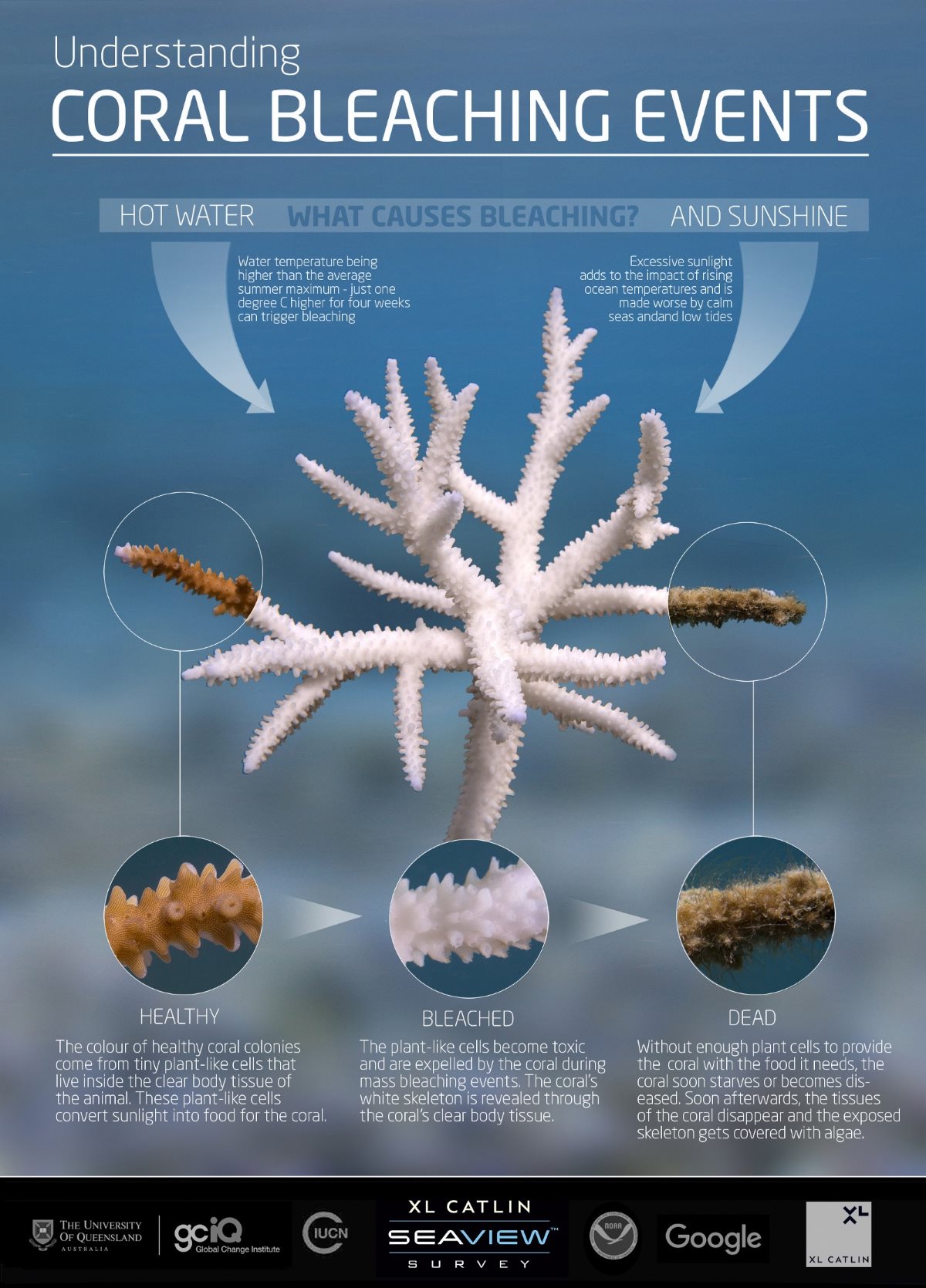
What are you most proud of?
Seeing our work come to life on the big screen. For the last three years Jeff Orlowski (director of Chasing Ice, the Emmy Award-winning film about climate change) and his team have been following the work we’ve been doing, recording and revealing the 3rd Global Coral Bleaching Event, and the result is Chasing Coral. The film premiered at Sundance earlier this year, where it picked up the highly prestigious Audience Award for US Documentary. It launched this month on Netflix Originals.
What do you believe is the future of the world’s reefs?
Science is predicting that the coral reefs of the world will face unprecedented challenges in our lifetimes. As much as 90% of corals could die if we meet the Paris agreement target, and if we don’t, the situation is predicted to be far far worse. People are talking about eco-system extinction. Some may say that’s a battle too hard to win… but for us at The Ocean Agency, and for the partners and co-funders supporting our new initiative 50 Reefs, this is not disheartening, but we must act fast. Our hope is that we can save enough reefs to ensure the reefs of the future have a chance to flourish once our ocean conditions are stabilised.
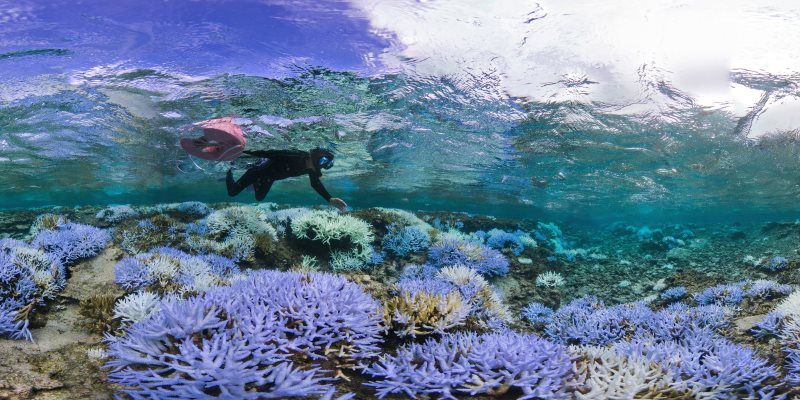
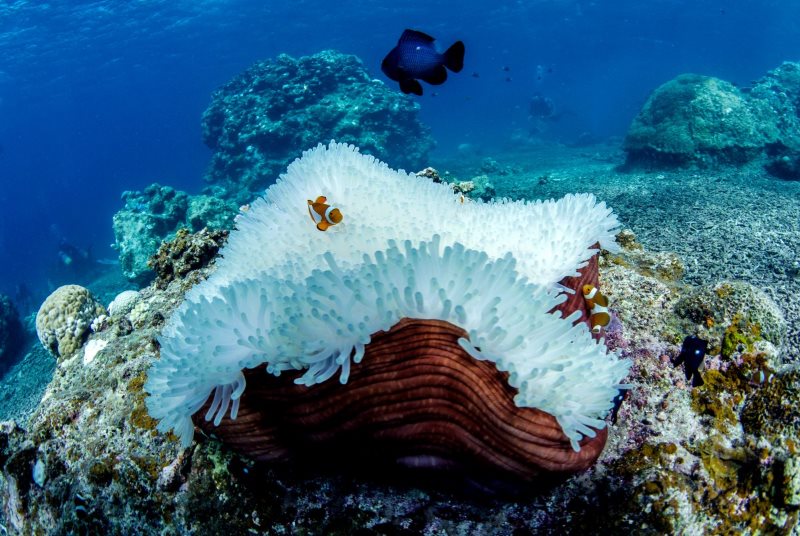
© The Ocean Agency / XL Catlin Seaview Survey / Richard Vevers / Stephanie Roach
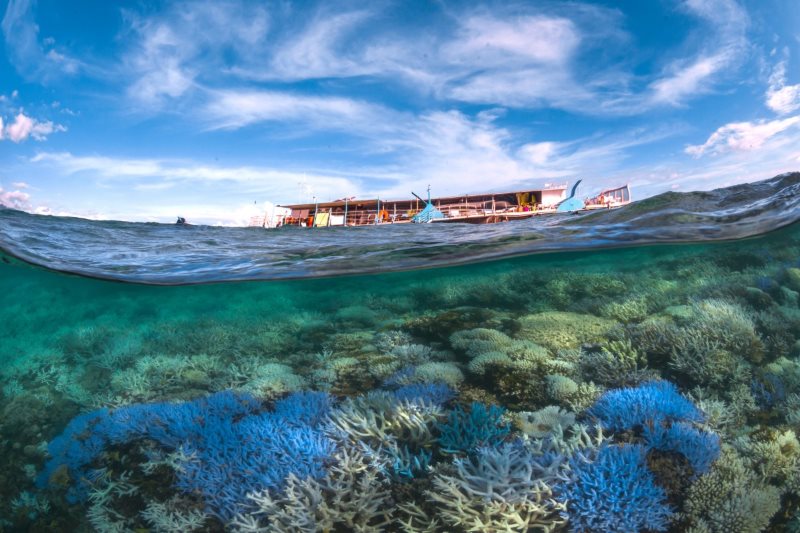
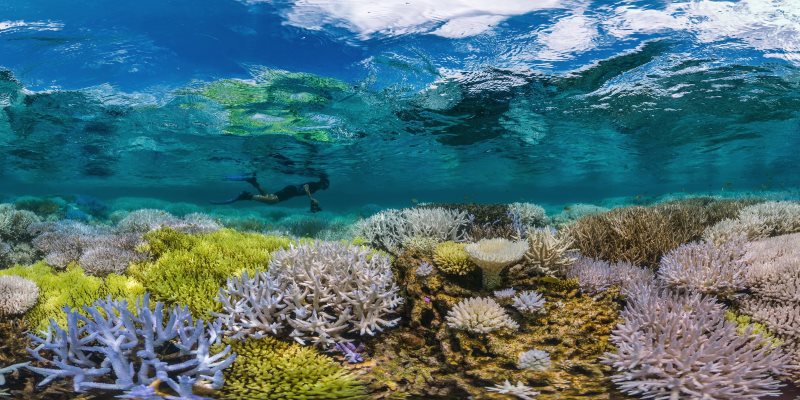
© The Ocean Agency / XL Catlin Seaview Survey / Richard Vevers
Why is the 50 Reefs project so significant?
There are many existing coral reef conservation projects in place, but there’s not one conservation project that takes a truly global perspective to tackling the significant and growing coral reef crisis. The 50 Reefs initiative aims to build on these existing coral reef conservation efforts by rapidly catalyzing new targeted action and investment in priority reef areas currently underfunded.
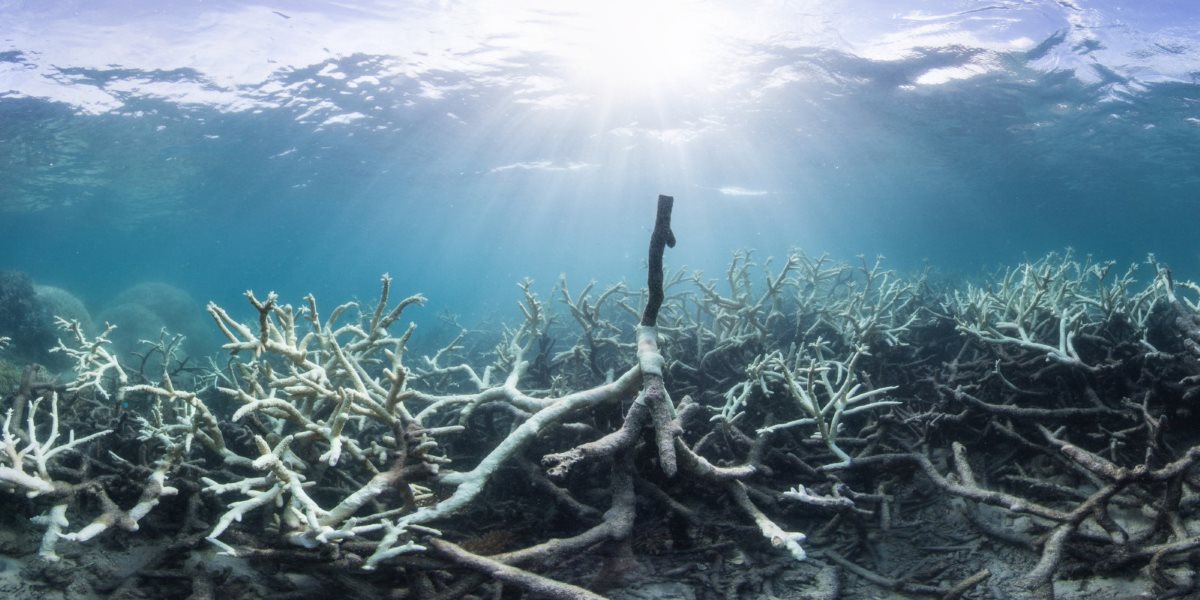
Lizard Island bleaching, Queensland, Australia © The Ocean Agency / XL Catlin Seaview Survey / Christophe Bailhache
What are the first milestones for the 50 Reefs project?
Fundamental to the 50 Reefs project is the identification of the coral reefs that are least vulnerable to climate change that have the greatest capacity to repopulate other reefs over time. The 50 Reefs extended science team are working intensively at present to determine this list of priority reefs, on track for announcement later this year.
And from there, we intend to put a plan in place to protect as many of these locations as possible via incremental funding and action.
What has been some of the most interesting/fascinating species encounters in the underwater world?
Each of our team members has their different experiences, and their marine favourites. Richard Vevers is deeply fascinated with the Weedy Sea Dragons that can be found in the waters around Sydney, if you look long and hard enough amongst the kelp. Christophe Bailhache spends a lot of time behind our underwater cameras and returns from trips filled with amazing tales of Humpback Whales, Dwarf Minke Whales and Whale Shark encounters, and of course dolphins. I can’t go past the weird and wonderful Mola Mola (Sunfish) that we went in search of in Indonesia. And we’re all particularly passionate about the Mantis Shrimp, the epitome of how diverse and bizarre life underwater can really be.
To find out more about The Ocean Agency visit: http://www.theoceanagency.org/
To explore Google underwater street view visit: https://www.google.com/streetview/#oceans
To learn about the feature film Chasing Coral visit: http://www.chasingcoral.com/
To find out more about 50 Reefs visit: https://50reefs.org
